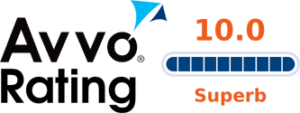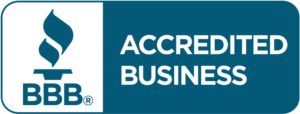It is possible to be overwhelmed by debts, even if you have high income. However, by filing for Chapter 13 bankruptcy, individuals with regular and substantial income can repay part or all of their debts. This section allows them to develop a repayment plan to make installments within a frame time of three to five years.
So, if you plan to get out of debt without losing your assets, Chapter 13 bankruptcy is the way to go because it has a provision in place for asset protection. However, to navigate the process successfully, you will need to employ a legal Chapter 13 attorney from the Law Offices of Scott R. Schneider that understands how the provisions of this Chapter work.
What Does Chapter 13 Bankruptcy Filing Cover?
Chapter 13 bankruptcy filing gives individuals with debt time to reorganize their finances and develop a repayment plan that is convenient for them. Here are provisions that Chapter 13 bankruptcy covers:
- Creditor harassment
- Foreclosure
- Medical expenses
- Wage garnishment
When Can You File For Chapter 13 Bankruptcy?
Chapter 13 bankruptcy filing is in place to help debtors who are not up to date with payments on their debts. These may include mortgages, student loans, taxes, and other non-dischargeable debt. These kinds of debts cannot be forgiven using Chapter 7 bankruptcy filing, but through Chapter 13, you have room to work on a new repayment plan with your creditors.
You may need to go through Chapter 13 bankruptcy when you have liens on your property or assets with a value greater than the possessions and assets whose worth is more than the exemption.
What are the Qualifications for Chapter 13 Bankruptcy Filing?
Chapter 13 bankruptcy filing is not for everyone. Individuals must meet several qualifications to be eligible for Chapter 13 filing, including:
- You must not be a commodity broker or stockbroker.
- You must be up to date with your tax filing.
- You have to pass the means test that measures your ability to pay back debts on assets, expenses, and income. However, if your income is too low, you may not qualify for Chapter 13 bankruptcy filing, and should instead consider filing for Chapter 7 bankruptcy.
The Process of Filing for Chapter 13 Bankruptcy
Once you are sure that you meet the requirements to file for a Chapter 13 bankruptcy, you can proceed with the process. The first item to submit is your repayment plan.
Here, you have to explain how you plan to settle your debt with your creditors. In this situation, the person who handles the payment transaction will be a trustee. If you are successful with your Chapter 13 filing, creditors will have no right to do the following:
- Harass or contact you
- Repossess your car
- Foreclose your home
- Garnish your wages
The Team at the Law Office of Scott R. Schneider specializes in helping clients with debt relief through Chapter 7 Bankruptcy, Chapter 11 Bankruptcy, and Chapter 13 Bankruptcy filings, as well as Foreclosure Defense services to stop foreclosures from moving forward. Contact them at +1-516-262-6493 for free Consultation.
The Law Offices of Scott R. Schneider Serves the New York communities of Hicksville, Jericho, New Cassel, Bethpage, Levittown, Plainview, Westbury, East Meadow, Syosset, North Wantagh, North Bellmore, South Farmingdale, North Merrick, North Massapequa, Uniondale, Wantagh.



Better Business Bureau
Bankruptcy Practice Spotlight
If you are facing a possible foreclosure, I can take my two-plus decades of experience to help you save your house.

I understand how stressful the prospect of losing a house can be and am committed to working one-on- one with you to understand all details involved in your financial situation.

